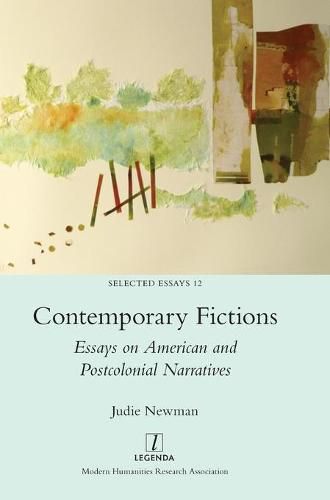Readings Newsletter
Become a Readings Member to make your shopping experience even easier.
Sign in or sign up for free!
You’re not far away from qualifying for FREE standard shipping within Australia
You’ve qualified for FREE standard shipping within Australia
The cart is loading…






This title is printed to order. This book may have been self-published. If so, we cannot guarantee the quality of the content. In the main most books will have gone through the editing process however some may not. We therefore suggest that you be aware of this before ordering this book. If in doubt check either the author or publisher’s details as we are unable to accept any returns unless they are faulty. Please contact us if you have any questions.
What does it mean to be contemporary? To write contemporary fiction? In this major collection of twenty-five essays Newman interrogates the value of the concept of the contemporary as a cultural and literary category, exploring novels and short fiction by American and postcolonial writers, including Marilynne Robinson, John Updike, Saul Bellow, Grace Paley, Nadine Gordimer, J. G. Farrell, Ruth Prawer Jhabvala, Bharati Mukherjee, Peter Hoeg, Dalia Sofer and Andre Dubus III, among others. In a sophisticated interrogation of the politics (and sexual politics) of narrative technique, Newman engages with major intellectual currents of the period, drawing upon thinkers such as Michel Serres, Guy Debord, Erving Goffman, Camille Paglia, Marcel Mauss, Julia Kristeva, Mary Douglas, and Eve Kosofsky Sedgwick to analyse fictional representations of the Holocaust, the struggle against apartheid, Vietnam, the 9/11 terrorist attacks, the Iranian revolution and the aftermath of Empire.
Judie Newman is Professor Emeritus of American Studies at the University of Nottingham and has published widely in the fields of American and Postcolonial literature.
$9.00 standard shipping within Australia
FREE standard shipping within Australia for orders over $100.00
Express & International shipping calculated at checkout
This title is printed to order. This book may have been self-published. If so, we cannot guarantee the quality of the content. In the main most books will have gone through the editing process however some may not. We therefore suggest that you be aware of this before ordering this book. If in doubt check either the author or publisher’s details as we are unable to accept any returns unless they are faulty. Please contact us if you have any questions.
What does it mean to be contemporary? To write contemporary fiction? In this major collection of twenty-five essays Newman interrogates the value of the concept of the contemporary as a cultural and literary category, exploring novels and short fiction by American and postcolonial writers, including Marilynne Robinson, John Updike, Saul Bellow, Grace Paley, Nadine Gordimer, J. G. Farrell, Ruth Prawer Jhabvala, Bharati Mukherjee, Peter Hoeg, Dalia Sofer and Andre Dubus III, among others. In a sophisticated interrogation of the politics (and sexual politics) of narrative technique, Newman engages with major intellectual currents of the period, drawing upon thinkers such as Michel Serres, Guy Debord, Erving Goffman, Camille Paglia, Marcel Mauss, Julia Kristeva, Mary Douglas, and Eve Kosofsky Sedgwick to analyse fictional representations of the Holocaust, the struggle against apartheid, Vietnam, the 9/11 terrorist attacks, the Iranian revolution and the aftermath of Empire.
Judie Newman is Professor Emeritus of American Studies at the University of Nottingham and has published widely in the fields of American and Postcolonial literature.